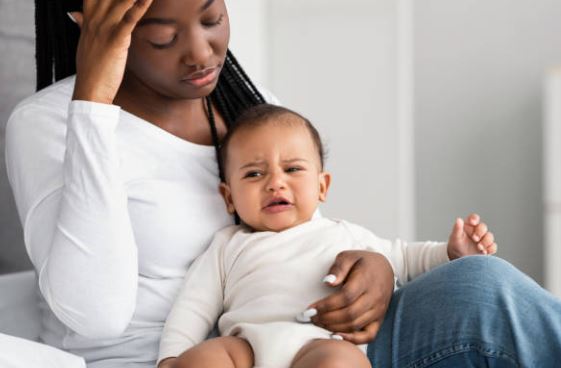Lifestyle
Women giving birth at this time of the year are more likely to suffer from postpartum depression: Study

Moms around the world will agree that no two pregnancies are the same.
Right from symptoms and mood swings to cravings and delivery, everything varies from one to another.
On one hand, you will be excited about the arrival of your little one, on the other hand, the hormonal changes will make you cranky and lead to drastic mood swings.
Most new moms experience “baby blues” after childbirth, which includes mood swings, crying and anxiety, but in some cases, it turns more severe and starts affecting their normal lives.
In medical terms, it is known as postpartum depression. According to research, the time of year your baby is born could significantly affect your chances of suffering from postpartum depression (PPD).
When mothers are more likely to suffer from PPD
For the study, the researchers reviewed medical records of over 20,000 mothers who gave birth between June 2015 to August 2017. The findings of the study revealed that women who delivered in the winter or spring were less likely to suffer from postpartum depression as compared to those who gave birth in the summer or fall. At the meeting of the American Society of Anesthesiologists, the researchers presented the observation of their study and clarified that the season of the birth of the baby was not the only thing that determines the risk of PPD. The maternal weight, race, epidural use, and the baby’s gestational age, are other factors that can play a significant role.
Why does the season matter?
There are a few reasons why mothers giving birth in summer or fall are more likely to suffer from PPD. The first one is because new mothers often stay at home to take care of their newborn, so they constantly feel isolated from their social circles, particularly due to the nice weather.
Secondly, a low level of vitamin D due to lack of exposure to sunlight during the cold months can make them feel depressed when they give birth in the summer or fall. Several studies suggest that most new mothers experience postpartum depression during their pregnancy, but half of them do not even realise it.
Postpartum and baby blues
It is common to get confused between postpartum depression and baby blues. In reality, postpartum depression is much more serious than baby blues. Baby blues go away within 1-2 weeks of the delivery, but postpartum depression can last much longer. It starts after the delivery and the phase may last for 4 to 6 weeks after giving birth. In some cases, it can start during pregnancy and can last up to 1 year.
The symptoms of postpartum depression include:
Loss of appetite
Excessive crying
Exhaustion
Anxiety
Insomnia
Difficulty bonding with the baby
Feeling angry
What should you do at this time?
Postpartum depression is a chronic condition and appropriate measures should be taken on time to prevent it from getting worse. A prolonged phase of depression can make it difficult for new mothers to bond with the baby and may even strain the relationship with the partner, friends, family and other children. Talk to your family or friends about how you are feeling and take their help whenever necessary. You can even seek a professional’s help if the condition gets worse.







